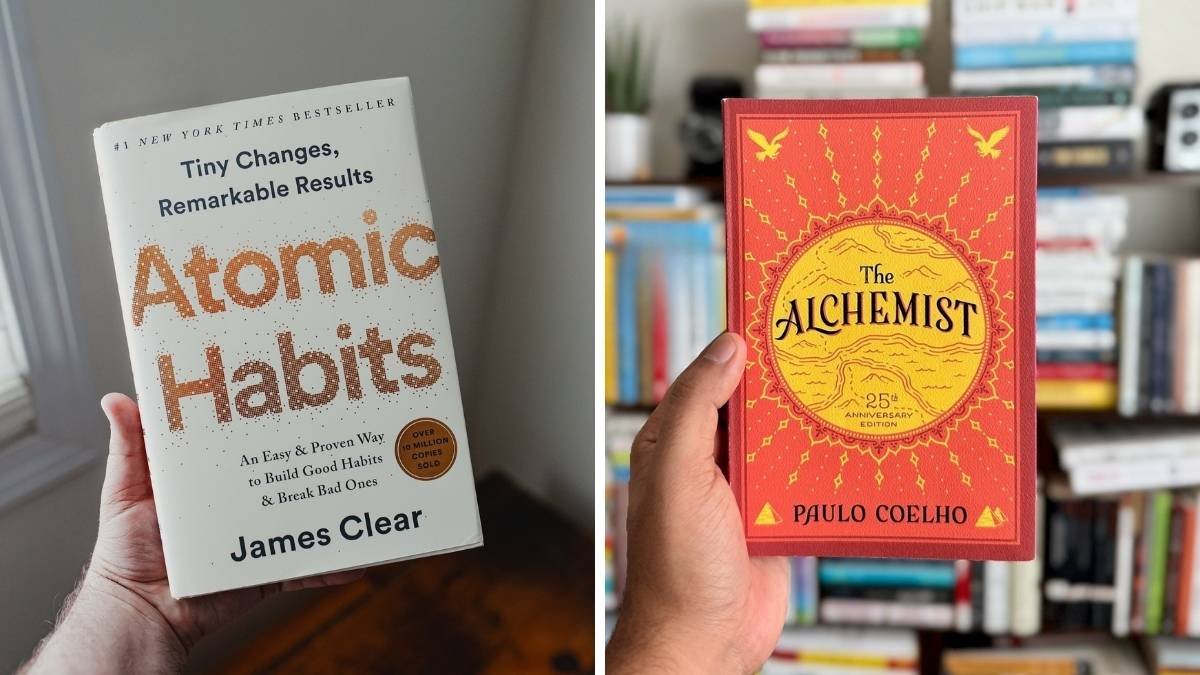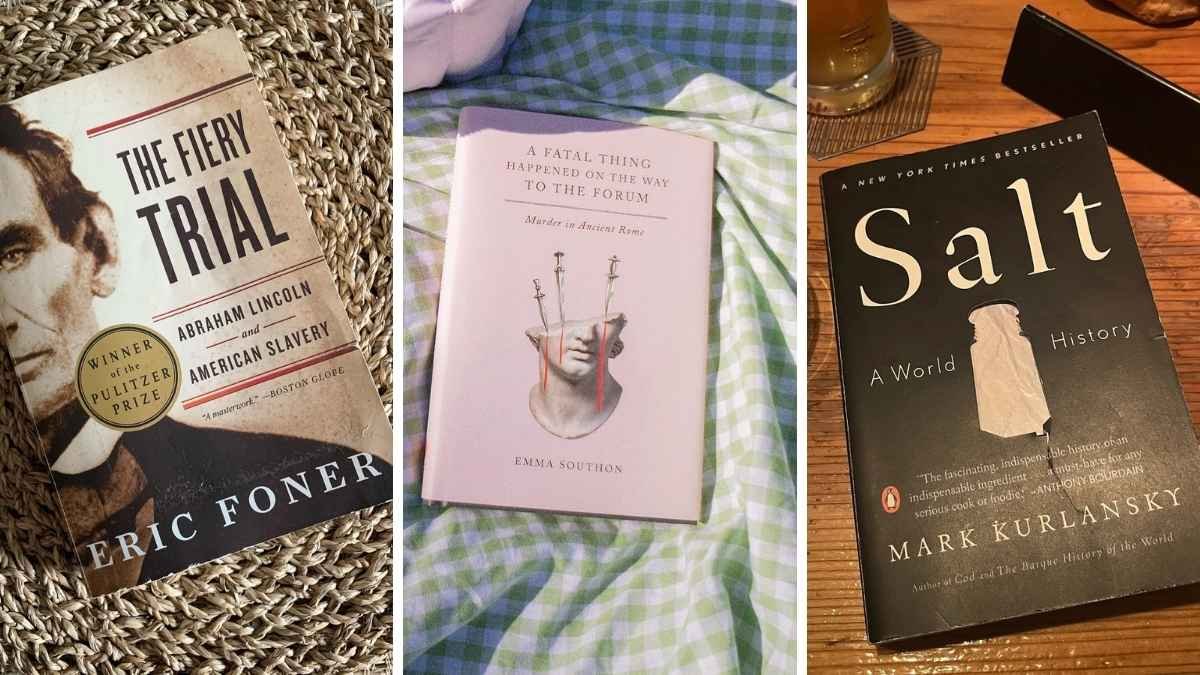
Anxiety is a universal human experience—one that often feels like a shadowy companion lingering in the corners of our minds. Whether it’s the relentless “what-ifs” about the future, the hypersensitivity to criticism, or the physical tension that leaves your shoulders permanently hunched, anxiety can be exhausting.
But here’s the thing: you don’t need a chipper “just think positive!” mantra to outsmart it. Toxic positivity—a harmful insistence that suppressing emotions or pretending everything’s fine is the solution—can make anxiety worse. I
nstead, these 13 books offer grounded, science-backed, and empathetic strategies to navigate anxiety without gaslighting yourself into pretending it’s not there. Let’s dive in.
1. The Body Keeps the Score by Bessel van der Kolk

If you’ve ever wondered why anxiety feels like a physical storm—a racing heart, trembling hands, or a pit in your stomach—this book is your roadmap to understanding the mind-body connection. Van der Kolk, a pioneering trauma researcher, argues that trauma and anxiety aren’t just “in your head”—they’re etched into your nervous system. Through groundbreaking research and real patient stories, he explains how chronic stress rewires the brain and body, making even mundane tasks feel overwhelming. The beauty of this book lies in its actionable tools, like yoga, mindfulness, and somatic experiencing, which teach you to “befriend your body” rather than battle it. It’s not about “fixing” anxiety but about reclaiming your nervous system’s balance.
Why it works: Van der Kolk’s approach validates the complexity of anxiety while empowering you to heal from the inside out. No forced positivity here—just radical self-compassion.
2. Feel the Fear and Do It Anyway by Susan Jeffers

This one’s a cult classic for a reason. Jeffers doesn’t sugarcoat the fact that fear and anxiety are normal, but she flips the script by arguing that avoiding discomfort only amplifies it. Her thesis? You don’t need to “get over” fear to live a bold life—you just need to learn to coexist with it. The book’s simple yet profound worksheets guide readers through reframing limiting beliefs (like “I’m not good enough”) and taking incremental actions despite the unease. It’s less about eliminating anxiety and more about building mental resilience to face challenges head-on.
Why it’s different: Jeffers normalizes fear instead of shaming it. Her mantra—“Feel the fear and do it anyway”—isn’t about recklessness but about proving to yourself that you can handle uncertainty.
3. The Upward Spiral by Alex Korb

Neuroscience meets self-help in this brainiac’s guide to rewiring anxiety. Korb breaks down complex science into digestible tips, explaining how tiny daily habits—like exercise, gratitude journaling, or even faking a smile—can remodel your brain’s stress response. The key insight? Anxiety thrives on “noise” (overthinking, rumination), and the brain craves “signal” (clear, actionable steps). By anchoring yourself in small rituals, you interrupt the anxiety loop.
Why it’s effective: Korb’s emphasis on micro-habits makes this book practical for even the most chronically overwhelmed. No need for grand changes—just one % better each day.
4. The Anxiety and Phobia Workbook by Edmund Bourne

If you’re looking for a comprehensive, hands-on guide to tackle anxiety and phobias, this workbook is your go-to resource. Bourne, a renowned expert in cognitive-behavioral therapy (CBT), provides a step-by-step roadmap to understanding and managing anxiety. The book is divided into sections that cover everything from generalized anxiety to specific phobias, panic attacks, and obsessive-compulsive disorder (OCD). Each chapter includes detailed assessments, practical exercises, and real-life case studies to help you identify your triggers and develop effective coping strategies.
Why it’s essential: Bourne’s approach is evidence-based and highly actionable. The workbook format ensures that you’re not just reading but actively engaging with the material, making it easier to apply what you learn to your daily life.
5. Anxious People by Fredrik Backman

Backman’s novel isn’t a self-help book, but it offers a powerful narrative that illuminates the human experience of anxiety. Set in a bank robbery gone wrong, the story unfolds through the eyes of a diverse cast of characters, each grappling with their fears and insecurities. Backman’s genius lies in his ability to humanize anxiety, showing how it manifests in everyday lives, from the overprotective mother to the anxious bank robber. Through rich, relatable characters and heartfelt storytelling, he reminds us that anxiety isn’t a flaw but a part of being human. The book’s core message? “We are all more alike than we think.” By seeing ourselves in others, we can find comfort and understanding.
Why it resonates: Backman’s blend of humor, empathy, and insight makes this book a comforting read. It’s less about “fixing” anxiety and more about finding solidarity in a world that often makes us feel alone.
6. Daring Greatly by Brené Brown

Brené Brown’s masterpiece isn’t just about vulnerability—it’s a rallying cry to embrace uncertainty without letting anxiety dictate your life. Brown argues that anxiety often stems from a fear of being “enough,” whether in relationships, work, or self-worth. Through riveting research and relatable stories, she shows that courage isn’t the absence of fear but the willingness to show up despite it. The book’s core message? “Vulnerability is not weakness; it’s the birthplace of innovation and change.” By practicing “wholeheartedness”—setting boundaries, leaning into discomfort, and rejecting perfectionism—you disarm anxiety’s power to control you.
Why it packs a punch: Brown’s blend of humor and honesty makes it impossible not to root for yourself. This isn’t about “fixing” anxiety but about thriving alongside it.
7. The Anxiety Toolkit by Alice Boyes

If you’re looking for a practical, no-nonsense guide to managing anxiety, Alice Boyes’ The Anxiety Toolkit is your ultimate resource. This book is like having a personal coach who understands the ins and outs of anxiety and provides actionable, science-backed strategies to help you take control. Boyes, a former therapist, breaks down anxiety into manageable components and offers specific techniques for different types of anxiety, from social anxiety to obsessive-compulsive tendencies.
Why it’s essential: The Anxiety Toolkit is perfect for those who want a hands-on approach to managing their anxiety. It’s not just about understanding the problem but about taking concrete steps to improve your mental well-being. This book is your go-to guide for building resilience and reclaiming your life from anxiety.
8. When Panic Attacks by David Burns

For those whose anxiety escalates into full-blown panic, Burns offers a lifeline. Using cognitive-behavioral therapy (CBT) techniques, he dismantles the myths around panic attacks (hint: they’re not heart attacks!) and provides simple, actionable strategies to break the cycle. From tracking triggers to challenging catastrophic thinking, the book empowers you to “outsmart your amygdala”—the brain’s fear center. Burns’ reassuring tone (“You’re not crazy; your brain is just stuck in a feedback loop”) makes this essential reading for anyone battling panic.
Why it resonates: Burns normalizes panic while giving you concrete tools to take back control. Think of it as a first-aid kit for your nervous system.
9. The Power of Now by Eckhart Tolle

While not exclusively about anxiety, Tolle’s timeless guide to mindfulness offers a radical perspective: most anxiety lives in the past or future, not the present. By anchoring yourself in the “now”—through breathwork, sensory awareness, or observing thoughts as clouds passing by—you disrupt anxiety’s narrative. Tolle’s philosophy isn’t about denying emotions but about “witnessing” them without identification. Critics may find his tone mystical, but his core message is profoundly practical: anxiety loses its grip when you stop fighting it.
Why it’s worth a read: Even skeptics can benefit from Tolle’s emphasis on presence. It’s less about spirituality and more about surviving your mind.
10. The Gift of Fear by Gavin de Becker

This book takes a unique approach to understanding anxiety by reframing it as a survival mechanism. De Becker argues that many of the feelings we label as anxiety are actually intuitive signals our body uses to alert us to potential danger. Through real-life examples and compelling research, he shows how tuning into these signals can help us make better decisions and avoid harmful situations.
Why it’s essential: De Becker’s perspective is particularly valuable for those who feel overwhelmed by anxiety. By recognizing that anxiety can be a gift, you can learn to trust your instincts and use them to your advantage. This book is a powerful reminder that not all anxiety is bad—it can be a tool for self-preservation and personal growth.
11. First, We Make the Beast Beautiful by Sarah Wilson

Sarah Wilson’s memoir-turned-handbook is a game-changer for anyone who’s ever felt like anxiety is their constant, unwelcome companion. Wilson doesn’t just talk about anxiety—she dissects it, demystifies it, and turns it into something almost… charming. Through raw personal stories (like her battle with agoraphobia) and practical, quirky strategies (e.g., “anxiety surfing” or the “5-4-3-2-1 grounding technique”), she teaches you to “befriend your beast” rather than fight it. Her approach? Anxiety isn’t a flaw—it’s a signal. By listening to it (without letting it boss you around), you can navigate life with more grace.
Why it’s special: Wilson’s humor and honesty make this book feel like a conversation with a wise, witty friend. It’s less about “fixing” anxiety and more about thriving alongside it.
12. The Myth of Normal by Gabor Maté

Maté challenges the notion that anxiety is just an individual problem—it’s a societal one. He argues that our hyper-competitive, trauma-ignoring culture is making us sick. Through compelling research and real-life examples, he connects the dots between early childhood experiences, societal pressures, and the anxiety epidemic. The key takeaway? Healing isn’t just about therapy—it’s about rewiring our relationship with ourselves and the world. Maté’s emphasis on compassion, connection, and systemic change offers a refreshing alternative to the “pull yourself up by the bootstraps” narrative.
Why it matters: This book isn’t just self-help—it’s a call to revolutionize how we think about mental health. Perfect for readers tired of being told their anxiety is their “fault.”
13. The Happiness Trap by Russ Harris

If you’ve ever felt like chasing happiness is making you more anxious, this book is your antidote. Harris introduces Acceptance and Commitment Therapy (ACT), an approach that flips traditional self-help on its head. Instead of fighting negative emotions, ACT teaches you to accept them as temporary passengers while steering your life toward what truly matters. Harris’ mindfulness-based techniques (e.g., “defusion” to detach from thoughts) help you stop struggling with anxiety and start living.
Why it’s powerful: Harris normalizes emotional discomfort and redefines “success” as alignment with your values—not a pain-free existence. It’s a liberating shift for anyone tired of battling their own mind.







